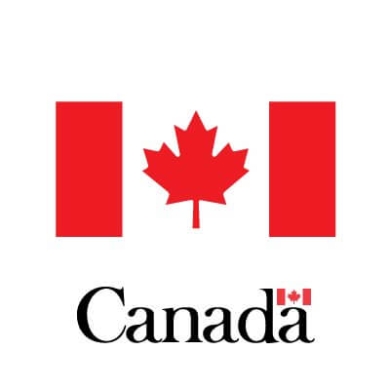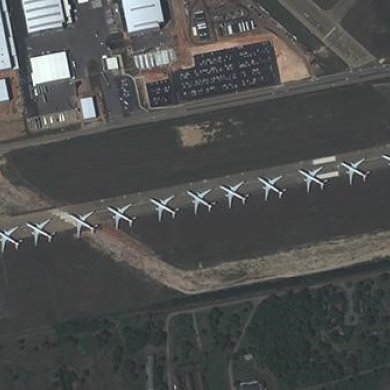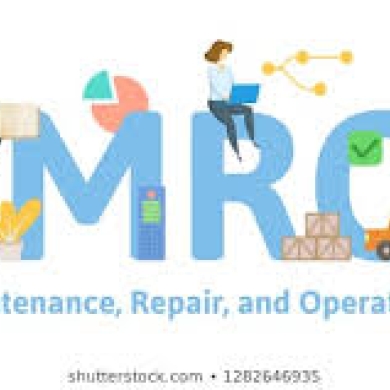May 6, 2020
NATO’s ‘startup’ charts a bold future in maritime unmanned systems
By: Michael D. Brasseur , Rob Murray , and Sean Trevethan Last December, at their meeting in London, NATO leaders declared: “To stay secure, we must look to the future together. We are addressing the breadth and scale of new technologies to maintain our technological edge, while preserving our values and norms.” These two sentences were, in part, a nod to a significant piece of work the alliance is undertaking within the broader mandate of alliance innovation — NATO's Maritime Unmanned Systems Initiative. Granted, on its own this sounds both technical and narrow within the context of emerging technology, a context that includes: artificial intelligence, data, space, hypersonic weapons, bio technologies, quantum research, autonomy and more. So why are maritime unmanned systems relevant now? Simply put, developing the numbers of manned submarines, aircraft and ships required to keep pace with potential adversaries is simply not economically viable (almost $3 billion per Virginia-class U.S. submarine). Not since the Cold War has NATO needed the volume of maritime forces to protect our seas and oceans from would-be foes. NATO's areas of interest are expanding. As climate change affects the Arctic, new maritime routes are being created, which Russia in particular is exploiting with its submarines and ships. This matters because it exposes a new flank on NATO's high-north periphery, and if left unchecked is a potential vulnerability whilst also being a potential opportunity; this, coupled with an increasing need to protect our undersea data infrastructure means NATO's geostrategic responsibilities continue to grow. Therefore, if allies are to reinforce NATO's maritime posture, deter Russian aggression, guard against Chinese activity, and protect both critical national infrastructure and our sea lines of communication, NATO must do things differently and at the speed of relevance. NATO's Maritime Unmanned Systems Initiative was agreed by 13 defense ministers in October 2018. Since then, the initiative's success has attracted the participation of three more allies and garnered significant interest from all of NATO's maritime nations. The political agreement struck in 2018 provided the mandate for NATO to bring together disparate strands of common work ongoing within nations. NATO, acting as a network, enabled allies to become greater than the sum of their parts. The focus is threefold: utilize world-leading research to increase allied interoperability between conventional forces and unmanned drones; establish new tactics for our sailors to truly leverage these technologies; and develop secure digital communications for military drones across all domains (air, sea and land). Addressing these priorities together will enable this effort to be scaled across the alliance, at pace. To date, the speed of this effort has been breathtaking. So much so that even the United States and the United Kingdom — two allies who have invested the most in this area — are using the NATO initiative as a catalyst for their own national efforts. The last 12-plus months has seen the creation of a NATO project office, a governance body, as well as the planning and successful execution of the world's largest and most complex maritime unmanned systems exercise off the Portuguese coast in September 2019. This event brought together the very best from our navies, industry, scientific institutes and academia. The results were hugely impressive, with many “world firsts” including maritime unmanned systems augmenting conventional forces through multiple scenarios. We now have vast swaths of insight and information to start achieving those three goals of improving interoperability, enhancing our tactics and developing secure communications. The goal of improving allied interoperability is actually about enhancing standards. A topic often overlooked at the policy level but critical to the DNA of the NATO alliance. Standards drive interoperability, which in turn drives readiness, which ultimately aids deterrence. As NATO leads the development of new technologies, so too must come new standards that our industries and military can implement. Open architectures will be key, but allies and industry need to realize that we need to solve problems — not address requirements. No perfect solution will ever be delivered on the first attempt. The alliance will need to both innovate and iterate on operations in order to maintain advantage. This may be a cultural shift to some acquisition purists who are used to developing complex warships over 20-plus-year time frames. However, the challenge remains our ability to scale. With this project we have an agile global team functioning across multiple national and allied bureaucracies, each with their own culture and ways of working. Through engagement and investment, this team is yielding disproportionate results. Indeed, 2019 demonstrated what can be done with some imagination, effort and focus. But continual growth at speed will require faith by allies to maintain the course. Such is the nature of true change and innovation. There is a lot to do, and the stakes are high. Near-peer competitors are once again very real. Despite the global lockdown caused by the new coronavirus, COVID-19, the initiative continues to progress through synthetic networks and simulation, driven by passion and intent. Our economy, our data and its infrastructure still need protecting, now more than ever. This effort strives to accelerate maritime unmanned systems into NATO's arsenal to patrol the vast swaths of ocean and offset evolving threats. Success will be seen because it is being built on allied nations' shared values and norms, the same values and norms that NATO leaders recognized in London last year. Michael D. Brasseur is the director of naval armaments cooperation for the U.S. mission to NATO. He is also the first director of NATO's “startup,” the Maritime Unmanned Systems Innovation and Coordination Cell. Rob Murray is the head of innovation at NATO Headquarters. Sean Trevethan is the fleet robotics officer of the British Royal Navy, working in the future capability division at Navy Command Headquarters in Portsmouth, England. https://www.defensenews.com/opinion/commentary/2020/04/20/natos-start-up-charts-a-bold-future-in-maritime-unmanned-systems







